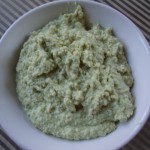Non-Animal Protein Sources
As vegans, we are continually asked, “So where do you get your protein (and calcium) from?” And that’s okay, but it does get old at times, however, it’s quite satisfying to share with them some facts that they were unaware of when it comes to alternative sources of protein.
Protein, which is made up of amino acids, is essential to our health. Did you know that only 10 percent of the total calories consumed by the average human being need be in the form of protein? The Recommended Dietary Daily Allowance for both men and women is 0.8 grams of protein for every kilogram (2.2 pounds) of body weight. Women who are prego, are recommended to consume a bit more.
But everything has a downside–even protein: Too much animal protein has been directly linked to kidney stones and has been associated with cancer of the colon and liver, whereas, the best health results have been found with plant-based proteins. Not only that, it takes 11x the energy to digest animal-based proteins than plant-based protein!
So let’s get to the good stuff (who wants to hear me ramble off more scientific mumbo jumbo)?
Legumes
Garbanzo beans, Kidney beans, Lentils, Lima beans, Navy beans, Soybeans, Split peas
Vegetables
Artichokes, Beets, Broccoli, Brussels sprouts, Cabbage, Cauliflower, Cucumbers, Eggplant, Green peas, Green pepper, Kale, Lettuce, Mushrooms, Mustard green, Onions, Potatoes, Spinach, Tomatoes, Turnip greens, Watercress, Yams, Zucchini
Fruits
Apple, Banana, Cantaloupe, Grape, Grapefruit, Honeydew melon, Orange, Papaya, Peach, Pear, Pineapple, Strawberry, Tangerine, Watermelon
Nuts and Seeds
Almonds, Cashews, Filberts, Hemp Seeds, Peanuts, Pumpkin seeds, Sesame seeds, Sunflower seeds, Walnuts (black)
Meat Alternative Products: Read labels! You might be surprised to learn that they almost always have more protein (and more easily digestible protein) than real meat. Tofurky sausages have roughly more than twice the protein than regular sausage links. 1 Field Roast sausage link has about 26 grams and Smart Deli lunch “meat” has 12 grams per 4 slices.
Other great sources courtesy of the Vegetarian Resource Group:
Tempeh 1 cup 41 gm 9.3 gm/100 cal; Seitan 3 ounces 31 gm 22.1 gm/100 cal; Soybeans cooked 1 cup 29 gm 9.6 gm/100 cal; Lentils cooked 1 cup 18 gm 7.8 gm/100 cal; Black beans cooked 1 cup 15 gm 6.7 gm/100 cal; Kidney beans cooked 1 cup 13 gm 6.4 gm/100 cal; Veggie burger 1 patty 13 gm 13.0 gm/100 cal; Chickpeas cooked 1 cup 12 gm 4.2 gm/cal; Veggie baked beans 1 cup 12 gm 5.0 gm/cal; Pinto beans cooked 1 cup 12 gm 5.7 gm/cal; Black-eyed peas cooked 1 cup 11 gm 6.2 gm/cal; Tofu firm 4 ounces 11 gm 11.7 gm/cal; Lima beans cooked 1 cup 10 gm 5.7 gm/cal; Quinoa cooked 1 cup 9 gm 3.5 gm/cal; Tofu regular 4 ounces 9 gm 10.6 gm/cal; Bagel 1 med. (3 oz) 9 gm 3.9 gm/cal; Peas cooked 1 cup 9 gm 6.4 gm/cal; Textured Vegetable Protein (TVP) cooked 1/2 cup 8 gm 8.4 gm/cal; Peanut butter 2 Tbsp 8gm 4.3 gm/cal; Veggie dog 1 link 8 gm 13.3 gm/cal; Spaghetti cooked 1 cup 8 gm 3.7 gm/cal; Almonds 1/4 cup 8 gm 3.7 gm/cal; Soy milk commercial, plain 1 cup 7 gm 7.0 gm/cal; Soy yogurt plain 6 ounces 6 gm 4.0 gm/cal; Bulgur cooked 1 cup 6 gm 3.7 gm/cal; Sunflower seeds 1/4 cup 6 gm 3.3 gm/cal; Whole wheat bread 2 slices 5 gm 3.9 gm/cal; Cashews 1/4 cup 5 gm 2.7 gm/cal; Almond butter 2 Tbsp 5 gm 2.4 gm/cal; Brown rice cooked 1 cup 5 gm 2.1 gm/cal; Spinach cooked 1 cup 5 gm 13.0 gm/cal; Broccoli cooked 1 cup 4 gm 6.8 gm/cal; Potato 1 med. (6 oz) 4 gm 2.7 gm/cal.








